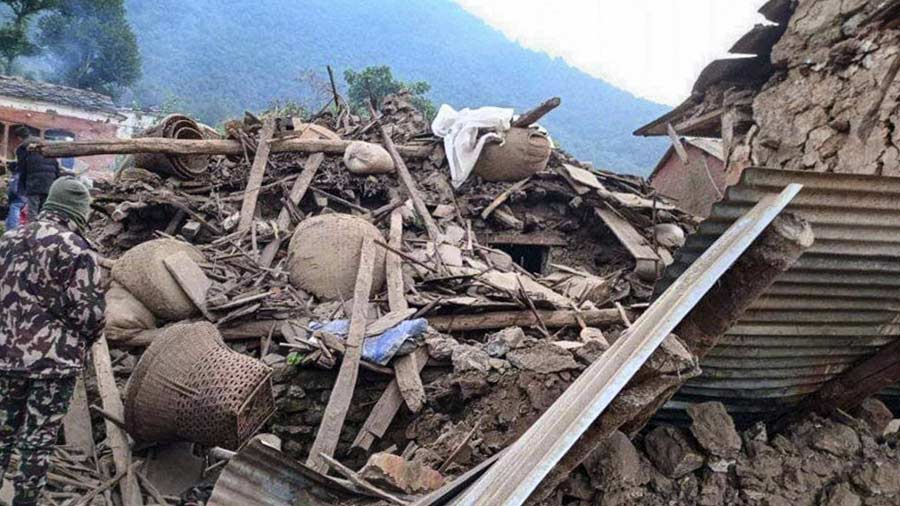The UN said on Thursday that it had sent its first aid convoy into northwestern Syria since a powerful earthquake hit the region three days earlier, a natural disaster that killed over 17,000 people and left millions homeless across Syria and neighboring Turkey.
Yet truck shortages, blocked roads and other logistical hurdles are impeding efforts by the 100,000-plus rescue personnel working in Turkey — equivalent to the population of a small American city — trying to unearth victims, bury the dead and provide aid to desperate survivors.
Sub-freezing temperatures and widespread shortages of two essential utilities — heating and electricity — will not make their work any easier.
In Turkey, many survivors are still without heat and electricity along a 200-mile swathe of mountainous terrain. On a road in the hard-hit province of Hatay, electricity poles were leaning at extreme angles.
In the smashed city of Antakya, people in winter jackets huddled around thickets of power strips to charge their cellphones.
Across the border in northwestern Syria, where millions displaced by the country’s civil war had been enduring a brutal winter without heating when the earthquake hit, power outages are creating fuel shortages in hospitals, according to the UN.
Snowfall has further impeded rescue efforts there, and temperatures were forecast to dip below freezing later on Thursday after rising during the day.
The harsh weather will likely compound the challenges for survivors and rescue workers across the earthquake zone, said Steve Glassey, an urban search and rescue expert from New Zealand who lives in Abu Dhabi.
When freezing water expands and snow makes collapsed debris heavier, it heightens the risk of further structural collapses.
As for hospitals, any left standing in the region will likely need to rely on generators, and the logistics of supplying fuel to them will be complex, Glassey said. And while aid agencies may deploy satellite phones to aid communications, he said, “this technology is always in short supply during a disaster”.
UN special Syria envoy Geir Pedersen earlier said people impacted by the earthquake needed “more of absolutely everything” in terms of aid.
“We need lifesaving aid,” Pedersen told reporters in Geneva.
“It’s desperately needed by civilians wherever they are, irrespective of borders and boundaries. We need it urgently through the fastest, most direct and most effective routes. They need more of absolutely everything.”
Pedersen said the UN had been assured the first assistance would cross from Turkey into Syria on Thursday, calling for assurances that there would be no political hindrances to getting aid to where it was most needed.











